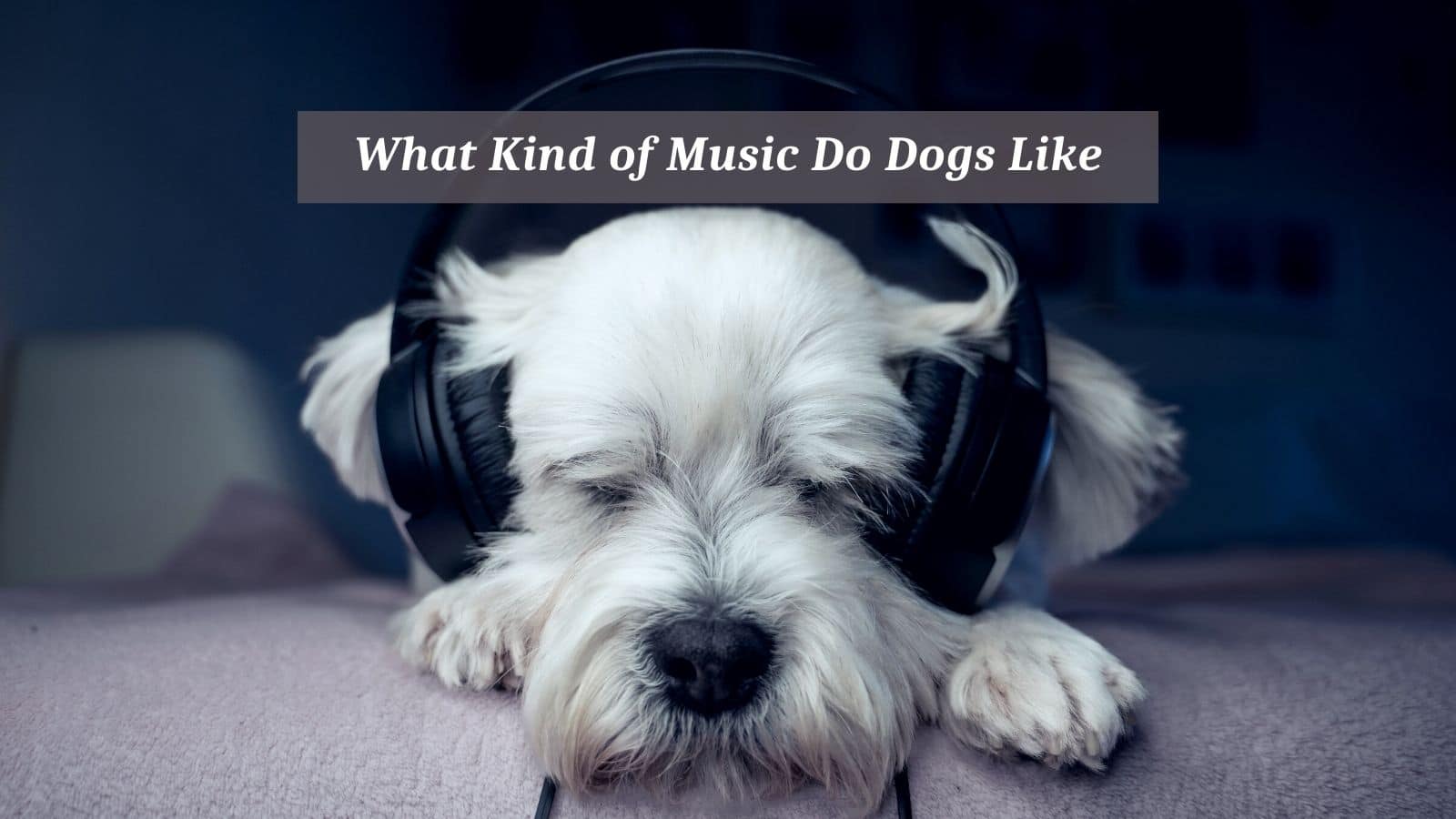
Man’s best friend, the dog, does more than offer companionship and protection. They also like to share in our hobbies and be involved in our day-to-day lives. For example, sitting quietly and listening to music is a worthwhile pastime to destress from work and life and to declutter your mind.
But have you ever thought about what kind of music your pup would like to listen to with you? Read on, and let’s find out what kind of music dogs like.
What Music Do Dogs Not Like?
Let’s get the bad stuff out of the way first, shall we? Although your dog loves spending time with you and being a part of your life, certain types of music are unsuitable. This is because dogs have sensitive hearing and know you’re playing music.
Because their hearing is sensitive, they can hear much more and higher frequencies when compared to humans.
For example, our hearing can pick up sounds between 20 and 20,000 Hz, which is quite impressive, but your dog’s hearing range falls between 47 and 40,000 Hz. So dogs can hear double the number of higher frequencies compared to humans.
Just like certain songs hype you up or downright irritate you because of the sound, the same can be said about dogs. Studies have shown that dogs also have preferences for certain types of music.
Because dogs are so sensitive to sound, you’ll have to use your better judgment when you select tracks for them to listen to—chaotic and loud music like heavy metal and grunge are certainly not the best choices.
Dogs can be negatively impacted by these types of music, causing them to become stressed, exhausted, anxious, or agitated. Exposing your dog to these kinds of noisy music will make them aggressive, depressed, and passive.
The sensory overload is just too much for them to deal with. Even if you play calm and soft classical music to your dog, it can hurt their hearing if it is too loud.
If the music seems too loud for you, imagine what your poor dog is going through. When the music is too loud, your dog can become stressed, and you may damage their sensitive hearing.
Maybe Dogs Prefer Silence?
In a study by Dr. Deborah Wells, the director of Animal Behaviour at Queen’s University in Belfast, recruited 60 dogs and conducted three ‘sound’ experiments with the dogs.
The dogs were divided into three groups and either left in silence for 30 minutes; listened to Mozart’s Sonata for Two Pianos, K448 on repeat; and a recording of Harry Potter and the Philosopher’s Stone read by Stephen Fry—also on repeat.
Researchers reunited the dogs with their owners after the first session. Then they switched to a new room to listen to an audiobook, some Mozart, or silence. Next, the dogs were recorded, and among other metrics, how long the dog took to settle down, how long they looked, or even barked at the speaker.
Neither the book nor Mozart had a marginal impact on the dogs, although Mozart dared better than the audiobook. Dr. Wells admits the research project is still in its early stages, and further research into this phenomenon is needed.
However, she adds that dogs can choose the type of auditory stimulation they prefer in an ideal world. Sometimes just like us, dogs also appreciate a bit of quiet time. You can read the full write-up about the experiment here.
What Types of Music Do Dogs Like?
Each dog has their taste in music, just like their owners. Researchers at the University of Glasgow and the Scottish SPCA published a paper in 2015 on how music affects dogs’ behavior.
According to this study, they played five different types of music: Motown, pop, soft rock, classical music, and reggae. Apparently, the dogs reacted the best to reggae and soft rock (source).
The researchers conducted their study according to parameters such as monitoring the dogs’ heart rates, how long the dogs stood up compared to lying down, saliva samples, and other behavioral changes. Regardless of the genre, the dogs reacted to the music and were calmer.
Create a Playlist for Your Dog
You could consider incorporating minor music ‘therapy’ sessions with your dog where you guys listen to your favorite tracks.
First, pay close attention to the types of music your dog reacts to and whether they like or dislike anything. Then, make a note of the songs your dog likes the most and create a playlist for them.
In this study, the researchers found that we can train our dogs to have an emotional response to music and associate it with us in times of stress.
Your curated playlist can also be helpful when there’s a loud thunderstorm outside or fireworks displays because your dogs associate the music with your presence and the calming bond between you, them, and the music.
Why Does My Dog Howl at the Music?
Dogs have a unique way of showing their enjoyment of music and a sense of pitch. Sometimes your dog will jump up and start howling along to the music—this is not always a bad sign.
However, you must check your dog for signs of agitation and stress to ensure they enjoy the music and do not react to auditory pain, anxiety, or agitation. Your howling dog is enjoying the music and ‘singing’ along to show their enthusiasm.
Conclusion
We’ve established that dogs enjoy music, although their ‘enjoyment’ of it might differ slightly from ours. Dogs enjoy relatively calm music without too many loud noises.
Heavy metal, heavy rock, grunge, and those types of music are unfortunately not our canine friends’ playlists of enjoyable music. Researchers have found that reggae, soft rock, and classical music are some of the most enjoyable genres for dogs.
Suppose you’d like to explore playlists for your dog. In that case, we highly recommend this article—scroll down to discover music for sleeping and separation and anxiety relief.


Our dog Lilou has to listen to me practice mandolin for hours everyday. She remains tolerant of fiddle tunes, bluegrass, ragtime, blues and Italian love songs-she hates scales, s/